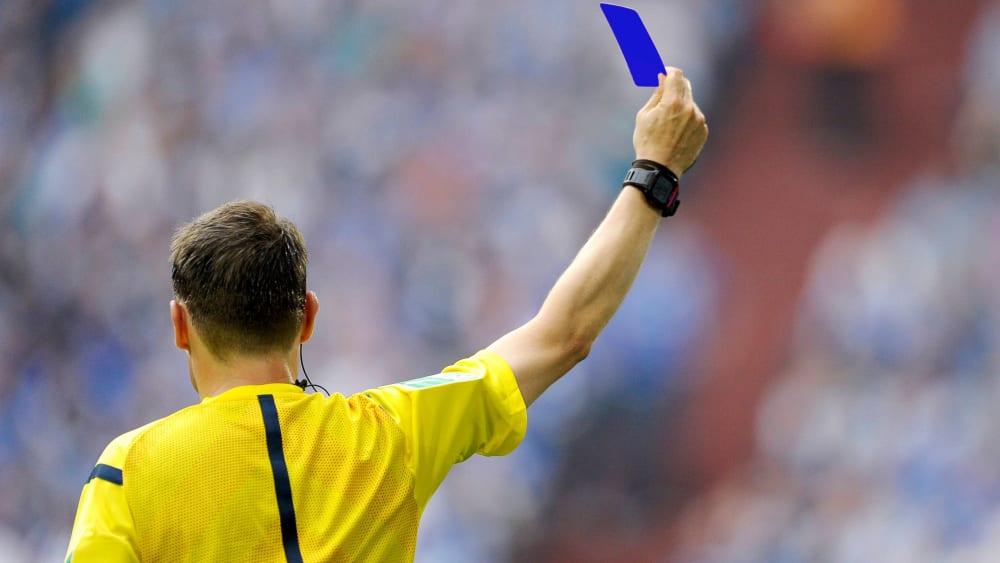After FIFA President Gianni Infantino put his foot down, the International Football Association Board (IFAB) has halted the introduction of the blue card as a signal for time penalties in professional soccer for the time being. Other adjustments will be made on July 1.
The blue card will not be introduced for the time being. As the rules committee announced on Saturday after its meeting in Glasgow, developments in youth and amateur soccer will first be observed before any trial phases in higher leagues. No time frame was specified.
According to the idea of the rule makers, the new card should have served as a signal for a time penalty and as an intermediate stage between a yellow and a red card.
The IFAB had actually wanted to vote on a test phase for the blue card in the English Cup. Infantino, who was not present at the press conference, categorically rejected this. The four FIFA representatives can prevent any decision on rules issues at the IFAB.
Interim Secretary General Mattias Grafström sat on the podium on behalf of the world governing body. The Swede was also appointed as the new chairman of the IFAB Board of Directors, a further increase in power for Infantino’s confidant
Adjustments to pack formations, handball penalties and timeouts
On Saturday, the IFAB announced test phases for other rule changes in professional soccer for the coming season. These will already be tested at the Olympic Football Tournament this summer. Part of these will be that in future only the captains will be allowed to speak in the event of controversial decisions following a signal from the referee in order to avoid pack formation.
The referees will also be given the opportunity to send both teams to their penalty area to “cool down” after heated situations or pack formation.
In addition, the personal penalty for handball penalties will be adjusted. If there is no clear intention to fend off the ball, only a yellow is to be given instead of a red.
A further adjustment concerns the goalkeeper’s timeout. According to the current rules, goalkeepers are only allowed to hold the ball for six seconds; if they do so for longer, an indirect free kick is awarded to the opponent. In future, the time limit will be eight seconds; if this is exceeded, the opposing team will receive the ball.





